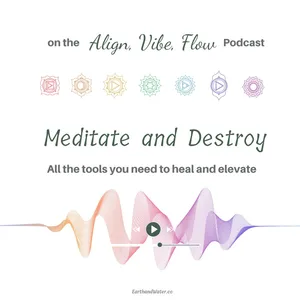For the past one hundred years, Emily Post has been America’s definitive source for how to navigate—and enhance—every social interaction. In an increasingly diverse and intersectional world, the need for a trusted primer on how to put people at ease and treat others with confidence and kindness has never been greater.
From advice on entertaining, table manners, and using titles and pronouns, to personal and professional communication etiquette, this stylish and essential reference provides thoughtful guidance on how to do it all well. Rooted in a foundation of consideration, respect, and honesty, this edition continues the Post family legacy of upholding traditions while moving forward with the times.
In fact, Emily’s original 1922 work hasn’t been this present in an edition for more than six decades, with references to her era and the history of American etiquette history along with modern day customs. Post's Etiquette, The Centennial Edition also includes handy reference guides for each chapter that make it easy to find the Posts’ most searched for content, like a gender-free attire guide, sample invitations, a soup-to-nuts entertaining chart, and more.
Lizzie is the great-great-granddaughter of Emily Post, and author of “Higher Etiquette,” and co-author of “Emily Post’s Etiquette” Centennial Edition, “Emily Post’s Etiquette” 19th edition as well as “Emily Post’s Wedding Etiquette” 6th edition and “The Etiquette Advantage in Business” 3rd edition.
She is a co-president of the Emily Post Institute as well as a co-host of the Awesome Etiquette podcast (now in its fifth year), a weekly Q&A show that explores the topic of etiquette through the lens of consideration, respect, and honesty.
Lizzie does speaking engagements across the country sharing advice about lifestyle and wedding etiquette.
She has worked as a spokesperson for brands including Bank of America, American Express Platinum, AirBnB, and Marshalls. She has held columns with Good Housekeeping, Women’s Running, and Houzz.com, The Farmhouse Movement, and Broccoli Magazine.
Lizzie offers a fresh, relatable, perspective with an engaging voice. She delights in encouraging the individual stand up for personal boundaries while respecting others. Lizzie enjoys tackling etiquette’s taboo topics with the media, making her a popular source. Her interviews include NFL Films, NBC’s The Today Show, Katie, Fox & Friends, Live with Kelly and Michael, The Gayle King Show, The Wendy Williams Show, Slate, Refinery29, Vanity Fair, Time Magazine, The New York Times, The Wall Street Journal, The Washington Post, The Chicago Tribune, Harper’s Bazaar, Travel & Leisure, Glamour, Cosmopolitan, The Huffington Post and more.
Lizzie Post holds a Bachelor of Science degree in Art Education from The University of Vermont and currently lives in her native Vermont.
JONES.SHOW is a weekly podcast featuring host Randall Kenneth Jones (author, speaker & creative communications consultant) and Susan C. Bennett (the original voice of Siri).
JONES.SHOW is produced and edited by Kevin Randall Jones.
EMILY POST Online:
Facebook: https://www.facebook.com/emilypostinstitute
Twitter: https://twitter.com/EmilyPostInst
Instagram: https://www.instagram.com/emilypostinstitute/
LinkedIn: https://www.linkedin.com/company/the-emily-post-institute/
Web: https://emilypost.com/
JONES.SHOW Online:
Join us in the Jones.Show Lounge on Facebook.
Twitter (Randy): https://twitter.com/randallkjones
Instagram (Randy): https://www.instagram.com/randallkennethjones/
Facebook (Randy): https://www.facebook.com/mindzoo/
Web: RandallKennethJones.com
Follow Randy on Clubhouse
Twitter (Susan): https://twitter.com/SiriouslySusan
Instagram (Susan): https://www.instagram.com/siriouslysusan/
Facebook (Susan): https://www.facebook.com/siriouslysusan/
Web: SusanCBennett.com
Follow Susan on Clubhouse
LinkedIn (Kevin): https://www.linkedin.com/in/kevin-randall-jones/
Web: KevinRandallJones.com
www.Jones.Show
















